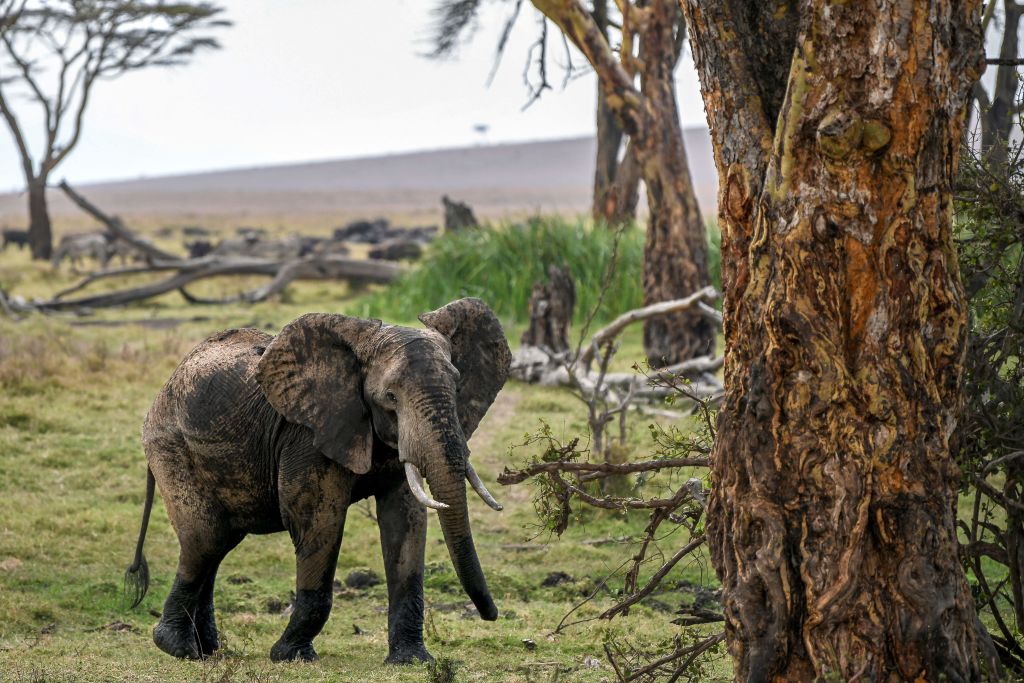- Thursday, April 25, 2024

By: Shubham Ghosh
ALL eyes have fallen on Shankar, an African elephant which was brought to India on a plane in the late 1990s from the continent and put in a zoo in Delhi, thanks to a plea in the city’s high court seeking his return home.
The petition has been filed by Nikita Dhawan, the teenage founder of non-profit Youth For Animals who alleges that the tusker has been living in isolation over the years and has also been mistreated by the zoo authorities, BBC reported. The news outlet contacted the officials over the matter but they remained tight-lipped.
ALSO READ: An elephant crisis silently unfolds in Odisha during pandemic
The petition has demanded removal of Shankar from the zoo and rehabilitation in a wildlife sanctuary which is home to other African elephants.
Dhawan said that through Shankar, she aims to spread awareness about the predicament of all elephants that are being held captive in the country currently.
“Indian culture gives elephants an elevated status. They are everywhere, in temples, in private ownership and are embedded in our history,” she said.
“Yet, we don’t take care of them,” she added.
Animal rights activists have been fighting for more humane treatment of captive elephants in the country that live in poor conditions. Many of the animals that are privately owned are used for religious processions and logging work and even begging.
Shankar is one of two African elephants kept in Indian zoos, the other being at Mysore zoo in the southern state of Karnataka.
When Shankar first came to India in 1998, he had a companion in Bombai.
The duo, who can be distinguished from their Asian counterparts with their bigger, fan-shaped ears, were gifted to former president of India Shankar Dayal Sharma by Zimbabwe.
The zoo officials have failed to say from where in Africa the elephants are, the BBC report said.
For some years, Shankar and Bombai survived well in the zoo in each other’s companion before the latter suddenly died in 2005, as per the petition. The reason for the death could not be ascertained by BBC.
Since his partner’s death, Shankar has been living a solitary life. Aged more than 26 now, the elephant is kept in a “bleak enclosure of steel posts and metal fences”, Dhawan said.
She decided to take up Shankar’s case after visiting the zoo last September when she saw him and was struck by his condition and “terribly sad” look.
The zoo has two other Asian elephants – Laxmi and Hira – but since they are kept away from Shankar, it is almost impossible for them to see and smell each other, the BBC report added.
Dr Sonali Ghosh, director of the zoo, said it is also trying out ways to end the lonely elephant’s isolation. She told The Indian Express daily last November that she had written to some parks in Africa asking whether they could find Shankar a mate or take him back.
Former director Ramesh Pandey said the zoo authorities also tried to get Shankar mingle with the Asian elephants but it did not succeed as Shankar was “untrained and obstinate”.
According to activists, this is happening because of Shankar’s environment.
“It is happening because he is isolated in inadequate surroundings,” Shubhobroto Ghosh, wildlife projects manager of non-profit World Animal Protection of India, told the BBC.
Male African elephants, he said, are perfectly capable of “making social bonds”.
But by restricting elephants in cramped enclosures, they are being forced to suffer psychologically and even develop neurotic behaviour.
While Dhawan has also launched an online petition asking the zoo to send Shankar to a “wildlife refuge or sanctuary where there are ample African elephants” and it has been getting a positive response, Shubhobroto Ghosh said if the court rules that the elephant should be shifted, he will be examined by experts who will decide whether he is fit for getting translocated.
He also said that if the court rules in Shankar’s favour, the verdict could go a long way in determining the fates of all captive elephants in India.
![]()